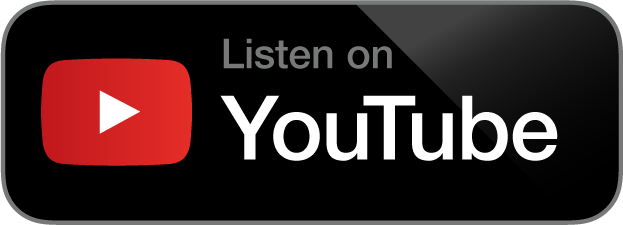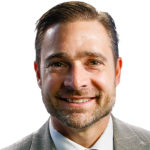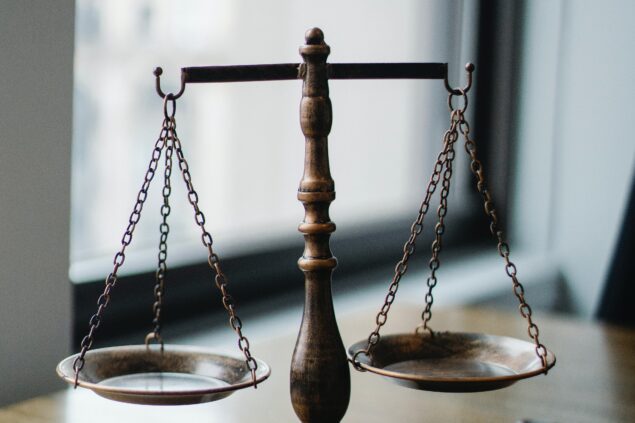Explainer Episode 60 – Bias Response Teams, American College Campuses, and Free Speech

What are bias response teams (BRTs)? What role do they play on American college campuses? And how is freedom of speech under the First Amendment involved?
In this Fourth Branch Explainer podcast, experts Jonathan Butcher and Jon Riches briefly explain the intellectual foundations of bias response teams, how these systems operate on American college campuses, and how legal protections such as due process and freedom of speech are involved.
Transcript
Although this transcript is largely accurate, in some cases it could be incomplete or inaccurate due to inaudible passages or transcription errors.
[Music and Narration]
Introduction: Welcome to the Regulatory Transparency Project’s Fourth Branch podcast series. All expressions of opinion are those of the speaker.
Steven Schaeffer: Hello, and welcome to the Regulatory Transparency Project’s Fourth Branch podcast. My name is Steven Schaeffer, and I am the Director of the Regulatory Transparency Project. We are happy to have with us today Jonathan Butcher and Jon Riches to discuss bias response teams on America’s college campuses. First, I would like to provide brief introductions of our two experts.
Jonathan Butcher is the Will Skillman Fellow in Education at The Heritage Foundation. He is the author of Splintered: Critical Race Theory and the Progressive War on Truth. He coedited and wrote chapters in The Critical Classroom, discussing the racial prejudice that comes from the application of critical race theory in K-12 schools. In 2021, South Carolina Governor Henry McMaster nominated Jonathan to serve on the board of the South Carolina Public Charter School District, a statewide charter school authorizer. He has researched and testified on education policy around the United States.
Jonathan Riches is the Director of National Litigation for the Goldwater Institute’s Scharf-Norton Center for Constitutional Litigation and General Counsel for the Institute. He litigates in federal and state trial and appellate courts in the areas of economic liberty, taxpayer rights, public union and pension reform, government transparency, free speech, and school choice, among others. Thank you both for being with us. Jonathan Butcher, I’d like to hand it over to you.
Jonathan Butcher: Thank you. And thank you for those introductions. The first time that I wrote about what are known as bias response teams was three or four years ago when I was a colleague of Jon’s over at the Goldwater Institute. And our friend, Nicki Neily, was running the group Speech First, and they filed a lawsuit against the University of Michigan, which operated what is known as a bias response team.
This allows an individual on campus—really anyone, but specifically it could be a student or an employee—who hears something, or sees something, or sees a poster on campus or a drawing on a sidewalk, or a comment made in class or in the hallway that they say offends them, and then they will report this to the DEI office or the Bias Response Team office, who will then conduct an investigation into what was said or what was on the poster or what was written on the sidewalk. Now, this can be done anonymously, so you can imagine the kind of self-censorship that occurs among students when a bias response team becomes a presence on a college campus. And courts have recognized this.
Now, I know Jon is going to talk about the legal angle here, but I just want to emphasize here that when the Department of Justice wrote a letter of inquiry into this case in the — involving the University of Michigan, that they said these bias response teams would chill speech, which, of course, in fact, they do. And we have seen similar comments made by judges in different cases. Speech First is still filing cases. They’ve filed cases at UT Austin, Oklahoma State, University of Illinois, to name just a few. And, of course, they’re run now by Cherise Trump who has done a terrific job carrying on what Nicole Neily did and started at Speech First.
But before I turn it over to Jon, I want to emphasize why this is so important for this present conversation that we are having today about DEI in public life, and in particular, even what’s happening with the antisemitic comments and protests that we’re seeing on college campuses and in cities, really, nationwide. So when people ask, “Why did Texas and why did Florida defund DEI on college campuses? Why did they close them down?” — now, the Iowa Board of Regents has done the same thing. And when you look at what these offices actually do, we recognize that it is based on racial discrimination. It is based on the very things that the Civil Rights Act was designed to get erased from public life in the United States.
So DEI offices, they are the political outposts on college campuses that enforce critical race theory. Okay? Critical race theory, for those who have followed the issue and the debates around what this philosophy actually is will know that it came from what is called critical legal theory, which, itself, is based on critical theory. Critical theory was designed in the 1920s and 1930s by a group of German Marxists who wanted to rejuvenate Marxism, and they said that directly. They hosted, in the 1920s, what was called the first Marxist work week. They were chased out of Germany by the Nazis in the 1930s and landed at Columbia University, where they began teaching generations of students how to apply Marxism, not just to class struggles—because that was the essence of Marxism, was the struggle between the working class and the capitalist class or the ownership class—and they applied it to culture and daily life: everything from art to education, as well as relationships and politics.
In the 1960s and ‘70s, by that time, their teaching of critical theory saturated itself into law schools in particular. And they took Marx’s description of the constant power struggle between groups in culture and in society and applied it to law, and they said that American law was created by people in power to maintain their power. Okay? That’s the essence of what Duncan Kennedy—professor at Harvard and one of the original critical legal theorists—describes as critical legal theory, and he attributes in his writings, in his lectures, the idea of critical legal theory back to Marxism.
Critical race theorists took the ideas from critical legal theory and said, “Well, they went almost far enough with critical legal theory.” Right? Law is oppressive. Rights are oppressive, according to them. But they said, “The issue here is the racial power struggle. That is what defines society,” is this zero-sum game between individuals from different races. And everything in American society is designed to oppress minority ethnicities, particularly Americans who are black.
So what does all of this mean for diversity, equity, and inclusion? What is critical race theory? Where is the bridge that gets us from critical race theory to diversity, equity, and inclusion? Well, as you look into the 1990s and you see what happened in California, where the Prop 209 abolished the use of racial preferences in public hiring and abolished racial preferences in college admissions, this was a key moment in the 1990s. You will see, shortly following that—I believe—the doubling down on college campuses of DEI offices. Right?
These offices not only try to enforce racial preferences on college campuses, but they also got themselves a fixture on hiring committees for hiring faculty, a fixture on the designing of what admissions would look like on college campuses, a fixture on school policies and inviting speakers to campus and designing what sort of school-sponsored activities would be happening on college campuses.
All right. So if we see this connection that everything that DEI offices are devoting themselves to is the protection of racial preferences, then it’s natural that the DEI offices at different universities—DePaul, University of Notre Dame, and on and on, Yale and others — all of these DEI offices wrote amicus briefs in the Students for Fair Admissions case, earlier this year, that was on the issue of racial preferences in college admissions. Right? These DEI offices try to defend the use of racial preferences. They also happen to operate bias response teams.
So now we’ve brought it full circle. After we described the roots of where all this came from, then when we identify that bias response teams—which, again, allow for anonymous reporting of being offended by something, anything on campus—we can attach this to the power struggle Marx and the Marxian ideas in critical theory have embedded in college campuses around the country. And we can see why the lawsuits from Speech First and others are so critical and are so important today.
Okay. So that gives you a bit of the policy background. I even mentioned Texas, Florida, Iowa have all taken steps to abolish DEI from campuses, and I believe that we’re going to see that from state policymakers around the country in the coming year because DEI is not there to improve student achievement. Right? It’s not there to provide tutoring. It is there to enforce a racial orthodoxy. That is what these offices do, and if you’re looking for proof, you can see it in their activities and in the types of programs that they operate.
So with that, I want to turn it to John, who I know can give some background and some more information about what’s happening in terms of the legal landscape around bias response teams.
Jon Riches: Thanks, Jonathan. Yeah. Framing that out is crucially important because I think it’s good for listeners to understand exactly how these things came to be and why they’re so pernicious, and I think it helps inform that understanding. So you highlighted one real major problem with these bias response teams, and that’s that the reporting is all done anonymously. Right? So you have somebody out — you have a college student or maybe a staff member or faculty member out there and they’ve leveled an accusation against somebody in the community. You don’t know who it is. You don’t know what the accusation is. You can’t defend yourself. And, of course, it’s kind of a fundamental component of our system that you have the right to confront your accuser, both to test their accusation and to put forward evidence or information as to why you might be innocent. So the anonymous piece is a problem.
Another problem with these is that the standards under which complaints are made are really vague. So it’ll be something like if words or actions violate “the principles of the community” or “are offensive or harmful,” then you can file a complaint with the bias response team — anonymous complaint with the bias response team and it’ll be investigated. And what courts have said that have looked at this is, if you have a system where there’s an ability to report anonymously on claims that are vague or overbroad, that’s going to chill free speech. And that’s, of course, a First Amendment violation.
The Sixth Amendment said that in one of the Speech First cases — or I’m sorry. The Sixth Circuit said that in one of the Speech First cases that you had mentioned, Jonathan. They said the definition of — in that case, the policy involved harassment or bullying, and they said that definition was unconstitutionally vague, unconstitutionally overbroad. The Fifth Circuit, in another Speech First case, had the same holding. So that’s a problem—that the existence of these bodies alone and the vague standards under which they operate chill speech. And that’s probably the last place we want to have speech chilled is on university campuses.
I know there’s been a lot of recent studies about free speech on campus. FIRE recently did a study on this—The Foundation for Individual Rights in Education—and they found that 83 percent of students on campus already self-censor. That’s pretty remarkable when you think about it. And that’s up from 60 percent in 2020. So if you have the vast majority of students who are already self-censoring and then you add to this fact this apparatus, this Orwellian apparatus of anonymous reporting with vague standards that nobody understands, nobody knows what’s permitted, what’s permissible, nobody can confront their accusers, you have a real recipe for chilling speech on campus and discouraging what ought to be encouraged.
Jonathan Butcher: Yeah. And I would add that in the Michigan situation, the Justice Department actually went out of its way to say that their harassment and bullying policies were “vague” and “overbroad.” Courts have pointed to these bias response teams, and they’ve said specifically, “It’s not clear what you’re looking for, and it’s not clear what students should be looking out for and what not to do.” Right? And they even — in the Eleventh Circuit Court—and you may have mentioned this one in Central Florida—they also cited the “vagueness” of the whole thing.
So it is just as broad, I think, as we’re describing here because it’s not clear what these DEI offices are really after. I think it’s — again, just to harp on this point that these DEI offices should be judged by the company that they keep. Right? Not only are they overseeing these bias response teams that courts are now saying are vague, broad, they chill speech, but they also — the individuals who work for these groups have been seen and caught on video tearing down the posters of people who have been kidnapped in Israel by Hamas.
If the object here is really diversity—so different people from different backgrounds being present in a place to share different experiences—if it’s really equity, which has some connotation of equality under the law—although that’s been misconstrued lately—and if it’s really about including people who are different than you, then why have DEI offices been so silent on antisemitism? Why have they been so silent when there have been shut downs on campus? Right? Should this not be the job of the DEI office to create this sense of a shared experience and different ideas?
I think it’s just very clear that these offices are ideologically driven. They have contorted and twisted the definition of diversity to mean anything but diversity and equality to mean, sort of, forced equal standing—forced equal footing, taking from some and giving to others—as opposed to treating people based on their decisions and behavior, and anything but inclusive.
The last point I want to make on this about why we should be so, so very aware and opposed to what’s going on with DEI offices is that there has been extensive research done on individuals who have undergone so-called diversity or anti-bias training programs. Right? Hundreds—hundreds—of surveys have been conducted on individuals who have undergone these programs to ask them how they feel, whether their attitudes have changed, whether they feel more tolerant of people with different ideas or from different backgrounds than they are, and the results have been nothing short of conclusive that they are either completely ineffective or, at best, have — create resentment in those who have undergone these trainings.
And you don’t have to ask me. Right? The Washington Post has run stories about this, New York Times has followed this, McKinsey and Company has written about this—they, of course, are the large consulting company for businesses. Over and over again, we find those who want DEI to work, asking the question in major media, “Why is DEI not working,” or “We have evidence that DEI is not doing what we think it’s doing.” And I think what it’s doing instead is what Jon was just describing. I think it is, instead, creating a culture of censorship and the cancel culture on college campuses.
Jon Riches: Yeah. I want to get — I want to get back to a point that you mentioned, too, Jonathan, about the types of things that oftentimes end up getting routed through these bias response teams. You alluded to it briefly. The College Fix has done a lot of reporting on this nationwide, and particularly a reporter named Christian Schneider. I mention him because we represented him in a case I’ll talk about in a minute. But he was looking at the various complaints to bias response teams throughout the country, and in one instance that he reported on, a student at Michigan State University was watching Ben Shapiro—a Ben Shapiro video on his laptop in his dorm room—and his roommate reported him for watching Ben Shapiro. Apparently, that was offensive to the roommate in some way, and that prompted an administrator to require a room change as a result of the Ben Shapiro video.
Well, I mention Christian for another reason. So he’s been looking at this throughout the country, and he has estimated that these bias response teams exist on hundreds of college campuses. So he would go to various public college campuses and submit public records requests, asking for the complaints that have been made to bias response teams. And, of course, under state public records laws, universities have to turn over public information about how the universities operate and how public dollars are spent.
So he made a request to the University of Arizona a couple years back, and interestingly, he made the same request to the same school a few years before that, and they gave him all of the — all of the bias response complaints. There are also two other public universities in Arizona—Arizona State and Northern Arizona University—and he requested the complaints to the bias response teams to those universities, and they gave him those records. But the University of Arizona said, “No. We’re not going to give them to you.” So we represented Christian and sent a letter to the University. Fortunately, it didn’t require litigation. After we sent them a letter, they were like, “Oh, well, I guess you’re right. I guess these are public records,” and they turned them over. They gave him these complaints, and he found just some pretty extraordinary things in there.
One of the things he had found was that a student reported her professor because the professor had said during class that he had never personally had a negative interaction with law enforcement, and that had offended the student, so she had reported him to the bias response team. So it’s these sorts of things, these sorts of examples of the types of complaints that are being made under these extraordinarily vague, incomprehensible standards that result in these kind of silly and outrageous complaints that then take up time, that then tar the name of the person who’s been accused of offending somebody and all of that. So there’s a lot out there that — these really aren’t solving any problems and are probably creating a whole lot more than they’re solving.
Jonathan Butcher: Well, and FIRE has — I mean, I think they’ve said hundreds — and I think Speech First has done a report on the number of bias response teams that also found hundreds upon hundreds across the country. And unfortunately, we are starting — it’s not stopping, and I wish I could say that — I don’t know exactly what the give and take is. I think for every lawsuit that shuts one down, I hope there’s not a replacement.
But at Carnegie Mellon, which is a private school in Pennsylvania, they now have a new bias response team. And what’s interesting about theirs—and this is what I wrote about in National Review a couple weeks ago—is that it can be anyone who’s on campus. So you don’t have to be a student, employee, or anyone related to the campus community. You could just be walking along the sidewalk and happen to be on the school grounds, and you could file a bias response team report, which — again, I think the way that this contributes to students self-censoring and not speaking what’s on their mind is — it’s just a frightening place be in, especially because colleges have to be the place where students can — they can ask the unaskable. Right? They can mention the unmentionable. I mean, you’ve got to be able to — obviously, within the bounds of harassment policies and things like that. Clearly, calling for genocide is wrong—we can establish that here—and all of those things. But nevertheless, students need to be able to — they need to be able to ask hard questions about this life and the next and talk through the tough questions about law and philosophy. And I think when they feel like something they say—like what you mentioned, Jon—in class about interactions with police or whatever, and students saying they’re offended and then that winding up causing some sort of repercussions is a — it’s a frightening prospect.
I’m sure that you’re familiar with the example from a few years ago, where I believe there was a professor in California teaching, I think it was basic Mandarin to students, and there was a particular term that sounded like a negative term that was used for Americans who are black, and he was reported for using that term. And, of course, he was speaking, if I’m not mistaken, it was Mandarin, but the students thought it was something offensive, and they reported him.
It’s no surprise — it’s no surprise that some of the most fascinating writing about DEI on campuses today is coming from former DEI trainers and former professors who used to teach on DEI. There are several great articles in Compact magazine by former DEI trainers who, themselves, have now been attacked for not being woke enough, I guess, and for actually trying to have substantive conversations about race and policy in the United States and finding themselves being canceled. There’s one professor in—I believe it’s San Diego—the San Diego area who’s now suing her school because of the way in which she was dismissed.
Jon Riches: Yeah. And look, the First Amendment was not put in place so it could protect conversations about the weather. Right? So even if we were to accept that offensive things are actually being said, apart from these—more often than not—ridiculous things that people find offensive, that’s the whole point. The whole point of free speech is to make people uncomfortable, to confront difficult topics, to say things that not everybody agrees with, to challenge orthodoxy. And when you have circumstances when Ben Shapiro videos or statements about, “I’ve never had negative interactions with law enforcement,” are the things that are triggering these things, when we are so far away from the — what was meant to be protected by the First Amendment, that it starts to become dangerous—very dangerous.
Jonathan Butcher: Yeah. Yeah. And that’s why the — what’s come out of Chicago is so important. I think Chicago’s had so many key statements over the last century. But between the Chicago principles and the Kalven Report and others, they go out of their way to say, specifically, that it’s not an educator’s job to protect students from ideas with which they disagree. Right? It’s not a school’s job to protect students from ideas that they don’t like.
Now, at the same time, we can talk about what is within appropriate bounds when you call for harm to other people and things like that. But I don’t think — that’s not what we’re talking about. With the bias response team, the examples that have come up have not been those. Right? The examples that have been brought to court have not been, “Someone called for me to be killed. I need to report to the bias response team.” It’s been something much more pedantic than that, that has been challenged, which makes the whole thing little more than a play in virtue signaling.
Jon Riches: Yeah. Exactly. And I think one other, maybe final, point on these things is that the people that sit on these bias response teams — so often it’s professors and faculty but also social workers at the university, very rarely is it folks that have any real understanding of due process, of adjudication. So you have — it’s almost like the stack is already — the deck is already stacked, based on the audience that’s receiving these complaints, without any formal training at all in the law or due process of law or confronting an accuser or examining evidence. So I think that’s just a — I think the fix is already in when you look at the composition of these groups. And as you say, what you often see is discrimination just as against certain viewpoints based on that composition.
Jonathan Butcher: Yeah. Obviously, they don’t have a good handle on free — on the First Amendment because they created bias response teams, which courts have pretty quickly said, “No. You can’t do this.” Right?
Jon Riches: Right.
Jonathan Butcher: So yeah.
Steven Schaeffer: Well, Jonathan Butcher and Jon Riches, thank you for this enlightening conversation. For more content like this, please join us at regproject.org—that’s regproject.org.
[Music]
Conclusion: On behalf of The Federalist Society’s Regulatory Transparency Project, thanks for tuning in to the Fourth Branch podcast. To catch every new episode when it’s released, you can subscribe on Apple Podcasts, Google Play, and Spreaker. For the latest from RTP, please visit our website at www.regproject.org.
[Music]
This has been a FedSoc audio production.

Speakers
Will Skillman Fellow in Education, Center for Education Policy
The Heritage Foundation
Topic
The Federalist Society and Regulatory Transparency Project take no position on particular legal or public policy matters. All expressions of opinion are those of the speaker(s). To join the debate, please email us at [email protected].









